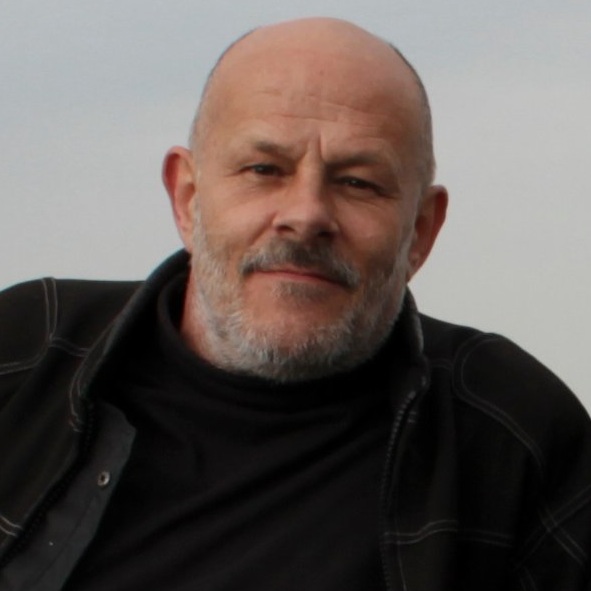
Travel, it’s said, broadens the mind and it’s difficult to imagine how it could fail to do so. Having said that I know there are plenty of tourists who’ve been all over the globe and returned with stacks of stunning photographs, who have somehow managed to learn precisely nothing about the lives of the local people beyond how they impacted, positively or – heaven forbid – negatively, on their ‘holiday experience’.
Obviously it’s a lot easier to do this if you are sailing around on a gargantuan cruise ship that delivers destinations overnight like a floating conveyor belt, or if you’re cossetted in all-inclusive resort in Sharm el-Sheikh, where the only suggestion of military coups and mass shootings come via the cable TV – on exactly the same news channel you could be watching at home.
Then there are the ‘Englishmen Abroad’ whose ex-pat mentality means that they live in the midst of an entirely alien culture, without ever giving a thought to any of the realities that might be happening outside of their gated community. But they’re not travellers, the only reason they’re not at home in Blighty is because, either they’re on a lucrative contract, or they’ve retired and they demand guaranteed sunshine and cheap labour. They certainly aren’t interested in learning anything about the natives – just as long as they have a consistent electricity supply to keep the air conditioning running and a steady flow of water to fill the pool and keep the lawns lush.
If narrow-minded ex-pats, cruisers and resort holidaymakers tend to miss out on the complete cultural experience, it would seem that it is nigh on impossible to travel independently on the road (where available) without developing a few insights into the way the people around you live their lives. In 1960 when Steinbeck decided that as he was making his living writing about America and Americans, it was probably about time that he explored his country again to see what they were like up close and personal. He chose to do this in a camper (which he named Rocinante after Don Quixote’s mount) with his French standard poodle Charley for company because experience had taught him that a dog is always a good conversational icebreaker.
I’ve never done any adventure riding myself, I learned to ride in London and if I’m honest I only really feel at home on decent Tarmac (not that there’s much that in the Metropolis these days!). I’m uncomfortable riding across a few hundred yards of loose gravel, let alone a few hundred kilometres of the worst the ‘developing world’ has to offer. Then there are the seemingly compulsory rickety bridges over bottomless ravines that link the rough mountain tracks complete with intermittent kamikaze truckers coming the other way and the kind of unprotected drops that make my nuts tighten and my head spin just looking at photographs! And don’t even get me started on venomous tropical bugs, snakes and all the other shit that would be just waiting to get me…
So while I might have no intention of doing so myself, it doesn’t stop me feeling envious of less timid riders who have the balls – or the ovaries(?) – to take on that sort of challenge. If travel is mind expanding, then genuine adventure travel must be mind-blowing, not least because, getting back to my original point, everything I’ve read suggests that it’s impossible to travel very far on a bike without getting to know something about your hosts, not least because a motorcycle provides the same sort of conversational leverage as Steinbeck’s dog.
Fortunately, given my faint-heartedness when it comes to travel, I grew up in one of the world’s major cities so while I might not have done much by way of exotic travelling, I have had the good fortune to meet people from around the world and been exposed to a veritable cornucopia of cultures. It could be argued that anyone I meet here is by definition living outside of what would be the societal norm in their native circumstances, which is undeniably true; nonetheless talking to someone who wasn’t born here and hearing their take on life in the UK can help to provide an understanding of the circumstances in their country of origin.
I was chatting to Tiffany, who’s the very American wife of Digest designer Simon about the weather (and, in spite of various language similarities, in many ways the US of A can be as alien as they come). She was saying that she has been here since 2007 and this was the first real summer she had experienced since she arrived – she honestly believed until recently that the Great British Summer belonged in the same category as unicorns and the Loch Ness Monster! However, it wasn’t the chat about weather that marked a major cultural difference between this side of the Atlantic and the other (as far as I know bitching about the weather is universal, it’s always too something) it was after we moved onto the NHS and she confessed that the first time she visited a doctor here, she’d felt guilty when she walked out without paying!
It reminded me of a conversation I’d had with the young fella who picked me up in a truck after the Rocket III I’d been riding gave out somewhere in the backwoods of Connecticut. As I reported in issue 134, “Travis had real difficulty grasping the fact that after I mashed my leg, everything from the ambulance that picked me up, to the first rate treatment I received when they delivered me to the closest A&E and my later knee replacement, was entirely free at the point of delivery. He… couldn’t get his head around the fact that throughout the whole process, nobody had asked to see an insurance policy or a credit card!”
I received a letter the next month reminding me that the NHS was far from free and I responded in my editorial saying, “Judging by Clive’s rejoinder, I struck a nerve last month when I made the mistake of suggesting that we enjoy ‘free’ universal health care in the UK. Of course he’s right, there is no such thing as a free lunch (expense account lunches for some maybe, but then even they’re not free – except for the people who are fortunate enough to be eating them!). So although the NHS is free at the point of delivery, it obviously has to be financed. But surely Clive you don’t believe that the whole of your 20% income tax, National Insurance, 17.5%VAT and fuel tax go to pay for the NHS? Because although it is the country’s biggest employer, there are innumerable other demands on the ‘public purse’. Aside from all the usual communal services like education and care for the elderly, bailing out the people who’ve enjoyed years of multi-million pound bonuses (and expense account lunches) has been pretty costly and the wars in Iraq and Afghanistan hardly come cheap, so I guess it’s just a question of priorities.
“For myself, in the same way as I’d be perfectly happy to insure my bike every year without ever having any reason to make a claim, I’m quite sanguine about the idea of subsidising thousands of life-saving operations without getting my fair share – in fact I find the idea very comforting. I would however be considerably less comfortable if there were 10 million men, women and children in this country (which is the same percentage of the population as there are in the US without health insurance) who couldn’t get one when they really needed it. And in spite of my woefully inaccurate description of health service funding, I think my American friend understood that it needs to be paid for, he just thought that it sounded like a good use for his tax dollars to be put to.
“Geoff Thomas (AKA Blue 88) witnessed an enormous range of political and cultural variety in his 28,000-mile trek around the world and his entertaining monthly reports of his adventures were clearly just the tip of the iceberg, nonetheless they provided all of us with some fascinating insights. He signs off this month, so I’d like to take a moment to thank him for sharing his travels and his thoughts with us in such an honest and openhearted manner and to wish him well for all his future plans (watch this space).”
Well, I’m glad to inform you that the NHS is still hanging in there despite everything it has endured recently and that “Ashes to Boonville”, the long awaited first part of Geoff’s ‘Poor Circulation’ trilogy is now available via Amazon (or by order from any good book shop). Top notch mind expansion from the comfort of your own sofa.
Dave Gurman

Dave,
on the beginning of your article, when I lived abroad my father in law came over and took loads of photographs of peoples front gardens, roads and general life. It was only a good while after when looking back through them I realised how wise he was recording the ‘normal’ that your mind forgets in some experiances.
Myself, when travelling as a family, we always try to ‘get lost’ in a different country or area, the experiance of finding your way around does indeed expand the mind and open up new challenges……….
And we do indeed fail to recognise some of the great work done by the NHS…………